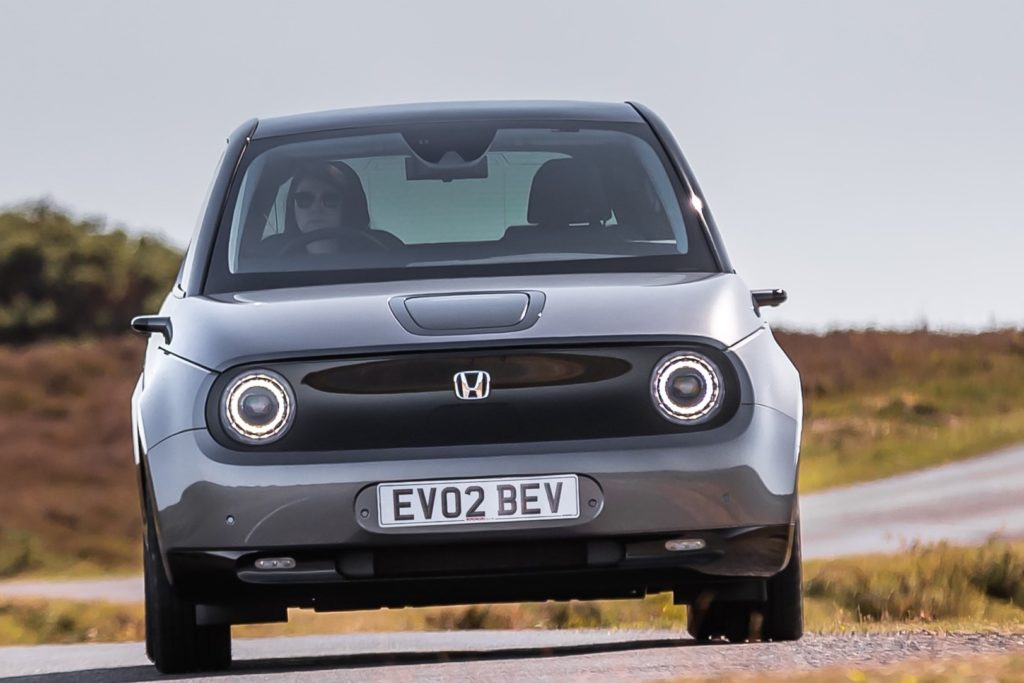
So now we know. Come 2035 and production of petrol and diesel cars will end for good.
Jo Public won’t be able to buy a new conventional engined car after 2030 and the only exception to electric will be hybrid or plug-in hybrid models which will have a five year grace period until the shutters finally come down.
Honda will have all its models electrified by next year, having decided to chop three years off its original 2025 deadline a move that will have big consequences for its biggest star, the Civic Type R.
Production of the current super quick bad boy is about to end but there will be a hybrid version next year which might not be a bad thing as electric motors boost horse power. You can just imagine the clamour to snap up a Type R the closer we get to E Day.
For now the Japanese company’s only electric offering is the pint sized Honda e, a five door city car with a modest range of 125 miles. A larger electric model will arrive next year and although Honda is keeping schtum it is likely to be a Civic or HR-V sized car. The new hybrid HR-V hits our showrooms in November, ahead of mainland Europe which will have to wait until next year.
As for Honda e it is ahead of its time when it comes to styling. At first sight it is a car that looks unfinished, there are no visible door handles, and then you think ‘there is something odd here’. It has no door mirrors and the answer to that conundrum is an even bigger surprise. Get inside and take in a new take on dashboard design. Everything is minimalist with clean surfaces, and then there is this strange full width black box stretching the full width of the dash. Futuristic or what?
All becomes clear with a press of the starter button when two 12 inch screens light up with a wing camera screen at each end taking the place of a door mirror. It is a world first and works perfectly well, in fact it gives a wider field of vision than a conventional door mirror. There is also the option of a remote camera view from the driver’s mirror but I found that a bit weird and flicked to a normal view.
The main screens provide information and plenty of connectivity options and, of course, personal devices can be synced so you can plug your whole life into the car. It’s all a bit mind boggling at first but pretty straight forward once you get the hang of it.
At 3895mm long Honda e sits between a city car and supermini, or to give a bit of context a Ford Ka and Ford Fiesta, but with rear wheel drive and the wheels plonked in each corner it is surprisingly roomy with space for four although I would not be planning any big holidays given the size of the boot. Shall we just say it is good for a few shopping bags.
Like all electric cars acceleration is brisk, even very brisk, and with 315Nm of torque on tap there are never any worries about quick overtaking. It is not the sharpest tool in the box when it comes to driving dynamics, wallowing slightly through sweeping bends and roundabouts but the car is about convenience and clean motoring, not rally driving!
My test drive was mainly around busy Surrey commuter roads and it was a case of e for easy, relaxing and, in the main, with silent running.
For now the stumbling block with Honda e, and every other electric car, is the price. No matter how much kit you pack into these cars, and the Honda has a more than generous spec, they are just too expensive and that is because volumes are still low and they are costly to build. All we can hope is that the price gap reduces the closer we get to 2030.
Fast facts
Honda e Advance
£31,265
Range 125 miles
Battery: 35.5kWh
Charge time 3h 30mins
0-62mph 9secs; 100mph
VED: Zero
Insurance group 29